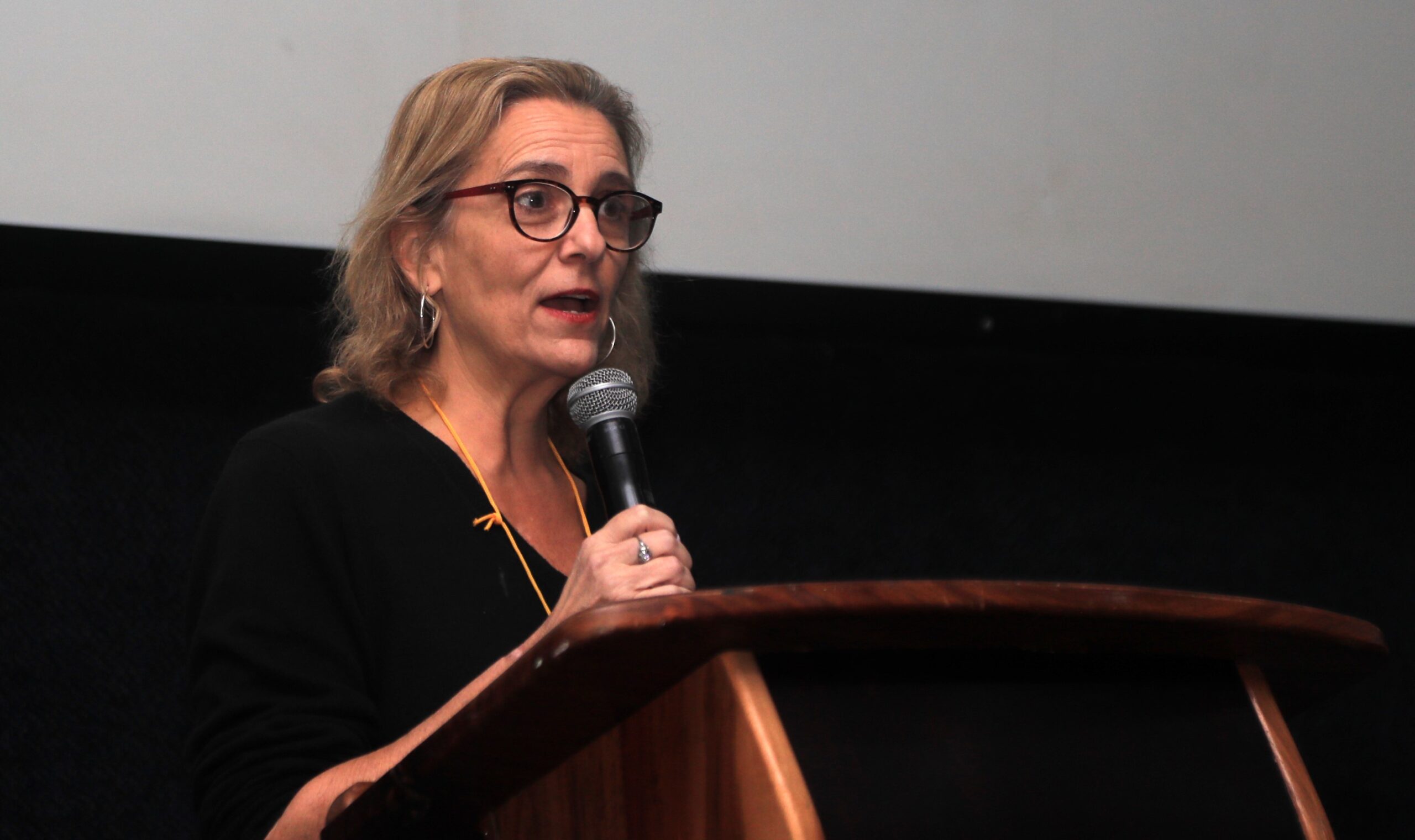
Israel

Israel’s judicial overhaul strikes a nerve at Limmud
“I have not seen the likes of this since the Yitzchak Rabin assassination in 1995. It’s a rip in the fabric of society and the national mood is bad. And it’s not a typical left-right battle,” Allison Kaplan Sommer, a seasoned journalist from Israel’s left-wing Haaretz newspaper, told an animated audience during an impromptu panel discussion on Israel’s proposed judicial reform.
Kaplan Sommer was referring to Israel being split down the middle over a package of proposed changes to the judiciary being pushed by the right-wing government of Prime Minister Benjamin Netanyahu. She and the other speakers traded verbal punches on this issue at Limmud Johannesburg last weekend.
Tens (and sometimes hundreds) of thousands of Israelis have poured onto the streets every Saturday night in towns and cities across the country to protest – mostly peacefully – at what they see as the hollowing out of democracy itself. The other half of Israel supports the elected government that’s driving the reforms, and believes the court is undemocratic and its powers are unchecked.
Kaplan Sommer has been covering the controversial proposals and the protests since they started in early 2023. She uses the term “judicial overhaul” as a more neutral term than “judicial reform”, saying that what people call the process indicates where they stand on this divisive issue. She described the demonstrations as “passionate but civilised gatherings where people bring their children”.
In contrast, Rabbi Adam Ferziger, a professor of Jewish History at Bar-Ilan University, explained why he doesn’t attend the protests, even though some of his siblings do. “While many demonstrators are sincere”, he said, “there are also many ‘antis’ jumping on the bandwagon, pushing causes I don’t believe in.” Nevertheless, he said it was incredible to see free speech being exercised and the passion shown in the flag-filled demonstrations every Saturday night.
An audience member shouted for more objective and less emotional analysis. Others were making impassioned speeches from the floor without asking a question, irritating Kaplan Sommer as moderator. The verbal battle of wills mirrored the cleavages in Israeli society that this judicial overhaul has wrought.
Kaplan Sommer traced the roots of this crisis back to the birth of Israel in 1948. Human rights are promoted in the Declaration of Independence, and although there were plans to craft a Constitution, an exasperated Prime Minister David Ben-Gurion gave up on it. He was frustrated in his efforts by both Israeli Arabs and ultra-Orthodox Jews. So, the Knesset passed nine “Basic Laws”, creating a de facto (but not de jure) Constitution, chapter by chapter. This piecemeal approach didn’t address which branch of government would have the final word on what Kaplan Sommer called “sticky issues”.
In the 1990s, under the presidency of Aharon Barak, the Israeli Supreme Court ruled that it could strike down any Knesset decision or law that violated a Basic Law. The judiciary thus acquired enormous power through this “judicial review” policy, in a political system with poor checks and balances.
Contradicting Kaplan Sommer’s analysis, barrister Natasha Hausdorff argued that opposition to the proposed reforms was full of “hyperbole, rhetoric, and demagoguery. Any democracy can be fragile depending on its challenges. Israeli democracy is pretty robust,” she said, pointing out that both centre-left politicians “Benny Gantz and Yair Lapid had previously called for judicial reforms, and are now hypocritically choosing not to engage in the legislative process or the mediation efforts of President Isaac Herzog.” The legal fraternity holds too much power in the selection of judges by the Judicial Appointments Committee”, Hausdorff said. “Israel has the most powerful courts in the world,” she said.
The right-wing believes that their policies are thwarted by the courts too often. Israeli conservatives accuse the courts of being an “Ashkenazi leftist cabal”, subverting what the Knesset decides and the wishes of those who elected them. They argue that this is fundamentally undemocratic. The current right-wing coalition wants to overhaul the judiciary, in a hurry. They want to have more say in how judges are appointed, for example.
Why is this issue exploding now? Kaplan Sommer noted, “Israel has had five elections in four years, and the current ruling coalition has 64 out of the 120 Knesset seats – a thin but important majority.”
“The main parties all have their own reasons for pushing this judicial overhaul,” she said. “The ultra-Orthodox want a more religious, theocratic state, and a broad exemption from the army for Yeshiva students. The far-right Otzma Yehudit are in favour of Jewish rights over Arab rights, and want Israel to annex most of the West Bank unilaterally. This would make any kind of Palestinian state functionally impossible. And Likud wants a weakened and compromised judiciary to protect Netanyahu from his criminal charges. They want the legal opportunity to bypass the courts and make his cases disappear.”
With these interests converging, the justice minister announced a package of measures to overhaul the judicial system, triggering the protests. Several coalition members have faced demonstrations outside their homes or on their holidays. There are fears of economic repercussions, and many Israel Defense Forces reservists have refused to undertake their duties, which could compromise the country’s security.
One measure in the package was recently passed “because the coalition wanted a victory”, Kaplan Sommer said. They struck down the “reasonableness clause” – which now limits the ability of the Supreme Court to review the “reasonableness” of government decisions. “It’s the first slice of the salami,” she said. It prompted sit-ins and more huge demonstrations.
Another Haaretz journalist, Omer Benjakob, said that Israel’s standing as a liberal democracy was at stake, and it risked becoming flawed, like Hungary and Poland. “The Knesset will not be checked by other branches, and we will not be in the family of nations. It’s difficult and depressing. People are fighting this in a whole new brand of activism. The only silver lining is that we aren’t taking for granted what we have,” Benjakob said.
The controversy over the judicial overhaul isn’t going away any time soon.











Choni Davidowitz
August 31, 2023 at 6:18 pm
For the first time in 2000 years Israel has a Bible-based government. There is only one correct side in any discussion on government policy.